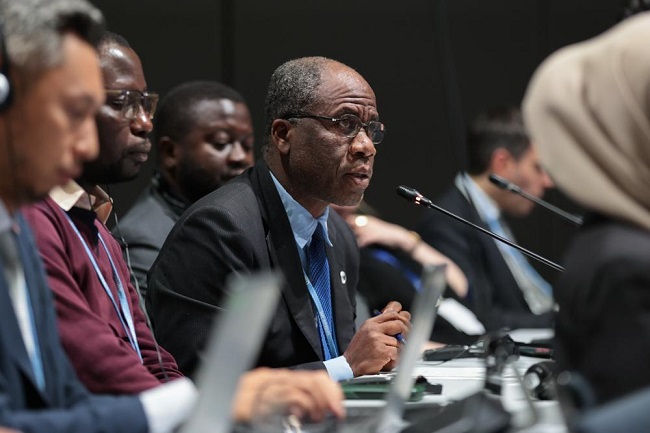As the June Climate Meetings (SB62) enter the final stretch, the Least Developed Countries (LDC) Group on Climate Change have raised an alarm over a perceived slow and insufficient pace of global climate action. According to the group, current efforts are dangerously inadequate to protect the more than one billion people represented and who live on the frontlines of the climate crisis.

The organisation expressed concern over the continued delay in submitting updated and ambitious 1.5°C-aligned Nationally Determined Contributions (NDCs) – especially by countries whose emissions reductions are critical to closing the gap – and the lack of ambition in many of those submitted to date. At the same time, progress on finalising measurable indicators for the Global Goal on Adaptation (GGA) remains worryingly stagnant, added the LDC.
“We are already enduring the most devastating consequences of climate change, cyclones, floods, droughts yet support continues to arrive too little and too late,” said Evans Njewa, Chair of the LDC Group. “The decisions made here in Bonn must reflect the urgency of our reality. Time is not on our side.”
As Parties approach the 2025 deadline for submitting new or updated NDCs, the LDC Group reiterated its call for NDCs that align with the 1.5°C temperature goal and reflect each country’s fair share of the global effort. With only 24 Parties having submitted their NDCs to date, the group urged developed countries and major emitters to lead by example through timely, science-based, and adequately financed submissions.
On climate finance, the LDC expressed disappointment at the outcome of the New Collective Quantified Goal (NCQG), with weak and vague commitments that risk failing to scale-up funding and improve access to climate finance, particularly for vulnerable countries.
“The finance flows we are seeing do not match the scale of the crisis. We urge the COP30 Presidency to ensure a transparent and credible roadmap toward delivering $1.3 trillion in climate finance by 2035. This roadmap must provide clarity on sources, timelines, and accountability mechanisms,” said Njewa.
He stressed that the current goal on adaptation is disconnected from the realities faced in vulnerable countries. As a concrete outcome of this session and COP30 in Belém, he called for a commitment to triple adaptation finance by 2030.
As negotiations on the Global Goal on Adaptation (GGA) continue, the LDC called for the establishment of robust indicators to measure progress across key sectors such as food, water, health, biodiversity, and resilient infrastructure.
It opposed attempts to dilute accountability by excluding indicators that reveal gaps in support or capacity.
“For us, success on the GGA will not be defined by the length of agreed text – but by lives saved and futures secured. We must track the means of implementation to ensure real progress.”
Four years since its establishment, the Mitigation Work Programme designed to urgently scale up ambition and action in this critical decade has severely drifted off track, observed that group, adding: “We are on a bumpy trajectory that could collapse this process as we note persistent resistance to addressing mitigation issues holistically, especially those linked to finance.”
The LDC added: “On Just Transition, we emphasise that our priorities differ significantly from those of developed economies. For us, a just transition means universal access to clean energy, enhanced energy security, green jobs, and most urgently comprehensive debt reform for our economies, many of which are facing unsustainable debt burdens.
“The UAE Just Transition Work Programme must not become a one-size-fits-all framework. If it is fit for purpose, it must centre the voices, needs, and realities of LDCs.
“We believe the road to COP30 offers a critical opportunity to restore trust in the multilateral climate process. That trust is hanging in balance. To rebuild it, developed countries must lead with ambition, finance, and fairness for effective implementation.
“We are committed to advancing the work here at SB62 and beyond. The world cannot afford to let the most vulnerable fall through the cracks.”
